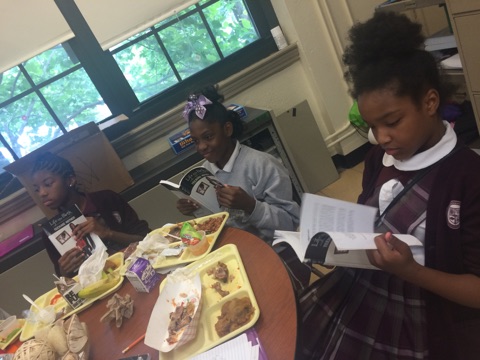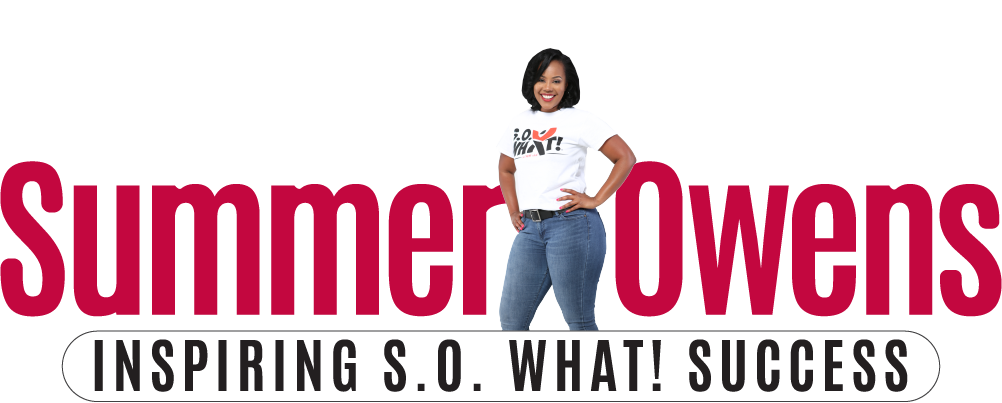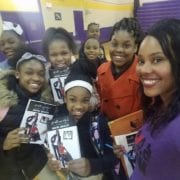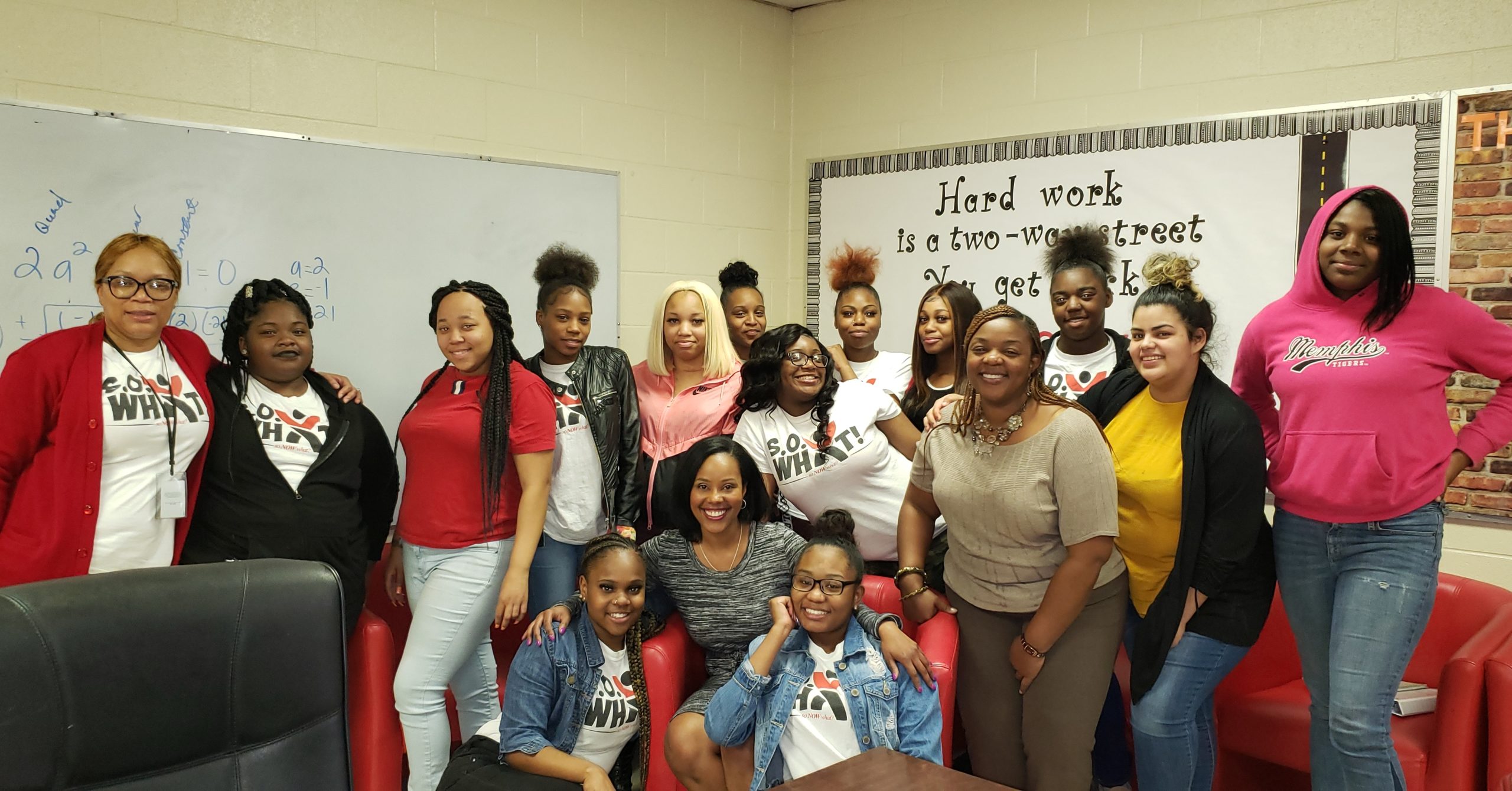The Importance of Literacy
The importance of literacy can’t be stressed enough.
On my lunch break for four years, I visited my mentee at the Adolescent Parenting Program. She complained about her relationship with her father and how he had no idea how she felt as a teen mother. She had read my first book, Life After Birth: A Member of Survival and Success as a Teen Mother. The book and curriculum were also being used in small groups with other students at the school. Because many men had read my book and told me it helped them to understand their daughters better (teen moms or not) and even understand women, I suggested that my mentee ask her father to read it.
She told me he couldn’t read.
Because I was witnessing how the S.O. What! Literacy, Life Skills, and Character Education curriculum was improving literacy (as well as life skills), I understood the importance of literacy. And I was determined to help everyone I could understand and improve as well.
Why is literacy important?
Literacy is a basic life skill which helps the individual, their families, and the entire society. Do you know anyone who cannot read or write? How is their life? Do you see any opportunities they might have missed out on because they couldn’t read the instructions or write their responses? Illiteracy is a reality in the US. According to a literacy report by the National Center for Education Statistics (NCES), about one in 20 adults in the U.S. is not literate in English. The National Center for Education Statistics (NCES) also published a 2020 skills map showing the states with highest and lowest adult literacy rates.
 We cannot overemphasize the importance of literacy for these reasons. And while it’s easy to draw comfort from high literacy rates in one state, the low literacy rates in other states should be a cause for concern. Literacy affects the welfare of individuals, families, communities, and countries. The other reasons for a focus on literacy:
We cannot overemphasize the importance of literacy for these reasons. And while it’s easy to draw comfort from high literacy rates in one state, the low literacy rates in other states should be a cause for concern. Literacy affects the welfare of individuals, families, communities, and countries. The other reasons for a focus on literacy:
-
Literacy affects success in school and life
Students spend a huge portion of the time in school reading and writing. It’s hard to take and pass a test if you’re struggling to understand what’s written. If you cannot write then you won’t be able to let your teacher know that you’ve understood the material. Yes, you could take an oral exam. But that’s not sustainable. We generally expect that beyond a certain age you can read and write on your own.
How about when you’re out and about going about your daily life? How will you know you’re in the right place if you can’t read the street signs? Will you know what you need to buy at the convenience store if your usual brand isn’t available on the shelf and you can’t identify it by sight?
-
Literacy is a basic life skill which could save someone from juvenile delinquency
To be able to leave independently and take care of yourself, you need to be able to read, write, comprehend, and interpret content and context. Functional illiteracy is a situation where someone can’t use their reading and writing skills to develop themselves or their community. This is a common scenario in the US where “nearly 85% of the juveniles who face trial in the juvenile court system are functionally illiterate, proving that there is a close relationship between illiteracy and crime. More than 60% of all inmates are functionally illiterate.”
-
Literacy is a required skill in the job market
When you cannot read or write, you may only qualify for low-pay manual work. You make it hard on yourself to enter the proper job market and partake of the growing work economy. And with the shift to a future where work is digital and demanding higher-level skills, you are at an even greater disadvantage when you can’t read or write.
-
The link between literacy and the success of society
When people can find work suited to their skills, they are better able to make meaningful contributions in society. However, where people can’t find work or can only take up low-paid work or no work at all, they turn to crime and other social deviances to sustain a lifestyle.
-
Literacy means inclusion in society and plays a part in poverty reduction
If some members of society cannot take part fully in activities, it affects the whole society. There is a direct correlation between literacy levels and rates of poverty where up to 75% of Americans who receive food stamps are on the lowest 2 levels of literacy.
-
Low literacy levels place an extra burden on a potential or new employer
Say one way or another you’ve convinced your new employer to hire you. They bear an extra cost of training you to read and write. Hiring managers expect young people entering the job market to have all the basic skills to hold down a job. And when they do not the job falls on their employer to upskill them. According to the Literacy Center, low literacy costs businesses and taxpayers more than $225 million annually.
-
Literacy promotes enjoyment in learning
Learning should be fun. But when you can’t read or write, the struggle of staring at gibberish and not knowing what is written in a book, kills any hopes of joy in learning. The excitement and fire to learn dies quickly.
-
Literacy gives you the keys to the world
Being illiterate locks you in a world away from others. When you can speak a language, read in it and write in it, opportunities to meet and interact with new people open up to you. There’s a confidence which comes with literacy that emboldens you to reach for opportunities beyond your wildest dreams. But knowing you can’t read or write dims some of that light and courage escapes you.
-
Illiteracy can be hard on a family
Because they can only access low-pay work and are locked out of the job market, illiterate parents face enormous challenges when providing for their children. It’s also nearly impossible for those same parents to support their children with their homework and other schoolwork. They may want to (very badly) but simply not have the tools to do so. Illiteracy can become generational if not addressed. Families then spiral into cycles of poverty from one generation to the next as they struggle to make ends meet, while living on food stamps, welfare, and unemployment benefits. Yet another trigger for juvenile delinquency and crime in adult years.
-
Literacy allows people to reach for the stars and get there
When you’re literate, you know what you know and the things you can do to bridge your knowledge and skills gaps. The ability to read and write is one which many people take for granted, because they have easy access to education. But talk to an adult who is learning to read, and they’ll tell you how accomplished they feel. They understand the importance of literacy.
-
Literacy boosts self-esteem and confidence
Being able to engage meaningfully with others, and see and interpret materials for yourself, that is a confidence booster. Better yet when you can be solely in charge of all the decisions for and about your life, your self-esteem soars.
-
Literacy helps individuals achieve personal goals
The ability to read and write makes it possible for individuals to gain knowledge which they can apply to achieve personal goals. The definition of literacy, as offered up by the Organization for Economic Co-operation and Development (OECD), is in line with achievement of personal goals. It says, “Literacy is defined as the ability to understand, evaluate, use, and engage with written texts to participate in society, achieve one’s goals, and develop one’s knowledge and potential.”
-
Literacy builds communities by empowering women and girls
The literacy numbers are stacked highly against women and girls. Of the 773 million illiterate people in the world, most of them are women. These numbers are a reminder that there is still work to do in supporting women and girls to develop literacy skills. A literate woman or girl is confident, can support themselves economically and contribute towards community building as an equal partner in society.
Literacy, in all of its definitions and forms, is critical to success in life. It is critical for successful families and successful communitites. And I’m honored to be doing my part through the S.O. What! Literacy, Life Skills, and Character Education curriculum to get students reading, reflecting, researching, writing, and more.
Want to help get youth work with to read and write more? Just contact me.
______________________________________________________________________________________________________
I’m Summer Owens, and my passion is helping youth and young adults realize success no matter what obstacles they face. As an international resilience and leadership keynote speaker, author, S.O. What! Success Coach, and creator of the S.O. What! Literacy, Life Skills, and Character Education curriculum, I empower people to say, “So what!” to even their greatest challenges. provide a framework to help people see past their challenges and focus on solutions using the S.O. What! Success System (Overcome Obstacles + Eliminate Excuses + Calculate Choices = S.O. What! Success). Through keynotes, workshops, books, online courses, and workbooks, I use life’s challenges and my own story of resilience as a rape survivor and teen mom success story to help others confidently pursue their dreams.
Looking for an inspiring college motivational speaker? A high school literacy curriculum? A middle school life skills workbook? A great example for teen mothers? A women’s empowerment or single mother’s conference speaker? I’m your girl and will help any audience say, “S.O. What!”.










